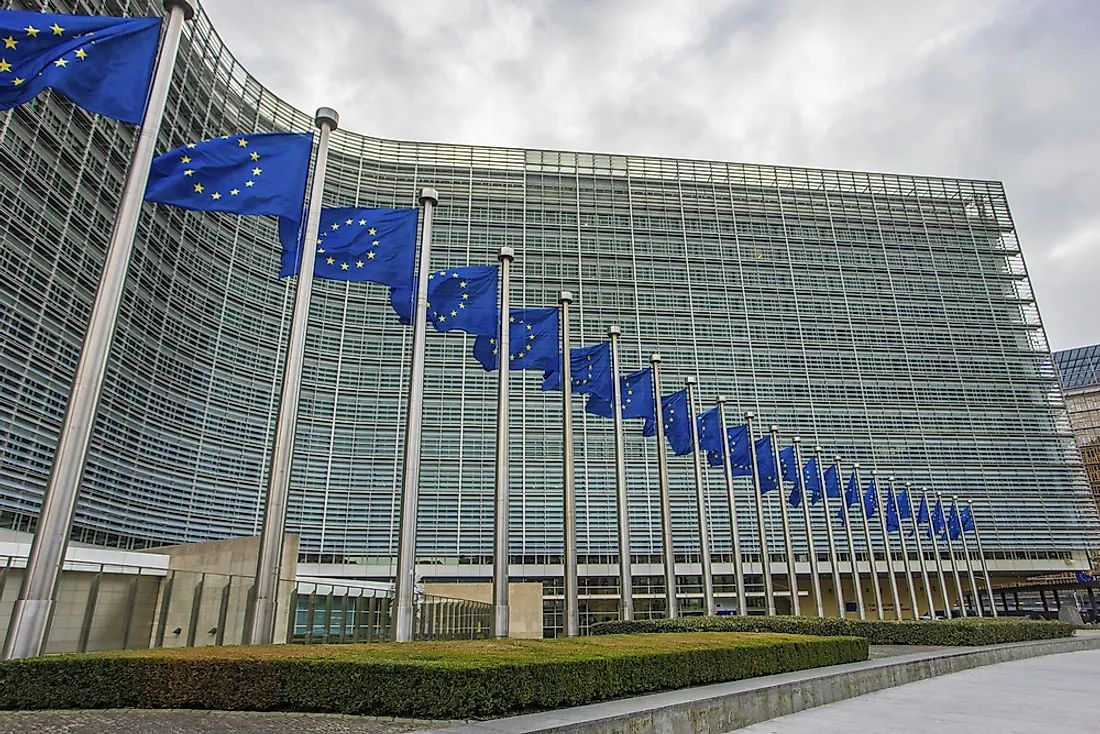EU Puts Philippines, Cambodia, Others on Anti-Money Laundering List
Posted on: April 22, 2022, 09:50h.
Last updated on: April 22, 2022, 02:27h.
The European Union recently released a list of the countries it feels aren’t improving their anti-money-laundering controls. The result is that individuals from these high-risk locations are subject to increased scrutiny by gambling operators.

The European Union (EU), through its European Commission (EC), regularly publishes a list of countries it feels aren’t doing enough to uphold global anti-money-laundering (AML) protocols. The EC released an updated list this month, including some familiar names.
The new list includes familiar names, such as Afghanistan, Barbados, Cambodia, the Democratic People’s Republic of Korea, Iran, Jamaica, Myanmar, Nicaragua, Pakistan, Panama, Syria, Uganda, Yemen, and Zimbabwe. In addition, the EC added Burkina Faso, the Cayman Islands, Haiti, Jordan, Mali, Morocco, Myanmar, the Philippines, Senegal, and South Sudan this year.
The EC’s list highlights countries that it feels have strategic deficiencies in their AML policies. These fall into a high-risk category subject to more scrutiny. As a result, gambling operators are expected to monitor individuals from the locations more closely when visiting gaming facilities in the EU.
EU Scrutinizes the Global Community
Appearing on the list is the result of failing to adhere to established EU criteria. Much of this coincides with the Financial Action Task Force (FATF), which also has the Philippines and other countries on its grey list.
The Commission is ready to specifically explore supporting third countries to assist them in rapidly addressing the identified strategic deficiencies,” the EC said.
However, the two don’t always agree. The FATF, for example, has Malta on its grey list, while the EU doesn’t. Zimbabwe is on the EU’s list, but the FATF took the African nation off in March of this year.
Establishing a Risk Profile
The EU developed its latest version of its risk profile in 2020. It periodically updates the list following the completion of assessments and ongoing reviews. The next major assessment is in 2025.
The EU analyzes several items to determine where a country falls in its AML controls. These include customer due diligence measures, how they report suspicious financial transactions, the country’s stance on money laundering, and more. They then meet with third countries to discuss their preliminary deficiencies. It informs them about their preliminary deficiencies and offers consultations to determine the most appropriate way to address them.
If the Commission still has serious concerns after the consultation, it will propose several mitigation measures to resolve them. The EC considers the responses of the third country, and then decides on the appropriate mitigating measures.
In order to reach its conclusion on a country’s status, the EC relies on information from a number of sources. Europol, the European External Action Service, EU member states, the European Supervisory Authorities, the FATF and the International Monetary Fund are at its disposal.
Related News Articles
Derek Stevens Announces Circa Las Vegas Resort and City’s Largest Sportsbook
Pennsylvania Casino Market Figures Not So Hot When Adjusted for Inflation
Most Popular
FTC: Casino Resort Fees Must Be Included in Upfront Hotel Rates
Genovese Capo Sentenced for Illegal Gambling on Long Island
NBA Referees Expose Sports Betting Abuse Following Steve Kerr Meltdown
UPDATE: Former Resorts World & MGM Grand Prez Loses Gaming License
Most Commented
-
UPDATE: Whiskey Pete’s Casino Near Las Vegas Closes
— December 20, 2024 — 30 Comments -
Caesars Virginia in Danville Now Accepting Hotel Room Reservations
— November 27, 2024 — 9 Comments -
UPDATE: Former Resorts World & MGM Grand Prez Loses Gaming License
— December 19, 2024 — 8 Comments -
FTC: Casino Resort Fees Must Be Included in Upfront Hotel Rates
— December 17, 2024 — 7 Comments
















No comments yet